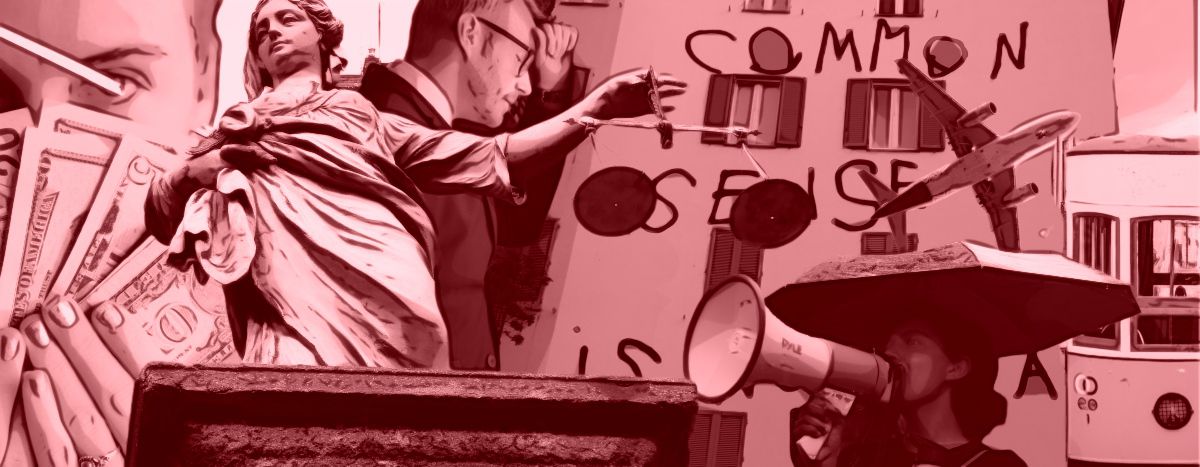
Europa Reloaded Ep.10: the housing crisis in Dublin and beyond
Published on
Translation by:
Cafebabel ENG (NS)Article 25 of the Universal Declaration of Human Rights recognizes the right of all people to adequate housing. But this normative principle clashes, every day, with reality. On 23 November, the European Parliament announced that there are currently 700,000 homeless people across Europe. That's an increase of 70% over the past 10 years.
Homelessness is one of the consequences of a broader social problem referred to as the 'housing crisis' or 'housing emergency'. The concept of housing crisis, in turn, describes a situation in which the presence of housing for residential purposes has become extremely scarce.
While it is hard to say where the problem is most felt, it is relatively easy to pinpoint the places, or countries, where it is most debated. Two countries in particular have been at the centre of public debate on this matter over the past few years: Ireland and Portugal. Inevitably, the problem is particularly concentrated in their respective capitals, Dublin and Lisbon.
In this episode of Europa Reloaded [Italian only], we spoke to Kenny (ex-homeless), Pierce Dargan (founder Secret Street Tours), Mick Wallace (MEP-GUE), Daniele Coltrinari (freelance journalist) and Antonio Gori (Habita), Left Hand Rotation. An English language text summary follows below.
The problem of homelessness in Dublin
According to Focus Ireland - an NGO that provides services to homeless people - in the past, most people using emergency housing were single adults. But in the last three years, there has been a rapid increase in the number of families in this situation. As a result, more and more minors are affected by homelessness.
The latest government data available, pertaining to 2019, describes 10,253 people as being homeless: among them are 1,700 families with 3,749 children. The situation has provoked many protests. In May 2019, thousands of people marched in Dublin to demand change and to denounce rent prices. Tenant and housing rights activist groups have also sprung up, organizing occupations of vacant buildings or pickets. Not a month goes by without media coverage of an eviction, or solidarity actions by social movements.
But how did things get this bad in Ireland? The rapid increase in homelessness in recent years is usually linked to the economic and financial crisis that erupted between 2007 and 2008, and the public debt crisis that continued after 2010. A New York Times article from 2019 by Ed O'Loughlin helps shed light on the details. A Deutsche Bank report from a few years ago also put it in particularly black and white terms: rent for a mid-range one-bedroom apartment in Dublin has risen to at least EUR 1,800 per month; 23 percent% more than in 2014.
Pierce Dargan is one of the founders of Secret Street Tours, a social enterprise that works to reintegrate homeless people into society by offering them training as city guides. Dargan has little doubt that what's missing in Ireland's housing crisis is a public housing programme: "I think a lot of it has to do with the fact that we haven't been able to meet our targets in terms of building social housing. All successive governments have said they would build a certain number of houses. But I don't think anyone has met the target."
"Building new public housing is - and is not - the solution. You can't just give homes to people who have mental or drug addiction problems. At the end of the day, some people can't live on their own. They need assistance as well as a home."
A Summary of social housing assessment in 2019 showed that more than 68,000 households qualified for social housing. More than a quarter of these had been on the list for more than seven years. Initiatives like Secret Street Tours are, in some ways, a grassroots response to policy failures.
Mick Wallace, meanwhile, is a Member of the European Parliament in the radical left-wing parliamentary group, GUE. He also has a background as a contractor in the construction industry. I asked him why, in his opinion, a chronic deficit of social housing persists in Ireland: "They don't want to build any because there is an implicit cost. Because they will interfere with the private market. If the state builds more, it decreases the private sector's profit. And then we also had the European Union that has, more or less, discouraged the construction of new houses, but to leave this sector as much as possible to the private businesses. And homelessness stems from that approach."
But why should it be the EU's fault? "Well, it is the responsibility of the European Union because the European Union tells us what to do. Or at least, it's also the responsibility of the European Union. But I don't want to 'deresponsibilize' the nation states. After the financial crisis, the EU forced us to implement austerity policies, which is part of the problem."
It is extremely difficult to disentangle the responsibilities of national and supranational levels. Still, the reference to austerity policies makes sense: between 2008 and 2012, spending on social housing in Ireland was cut by 72%. To be precise, it went from €1.38 billion to €390 million in terms of public investment.
According to Kenny, however, one of Secret Street tour guides, social housing can only be part of the solution to the problem: "Building new social housing is - and is not - the solution You can't just give homes to people who have mental or drug addiction problems. At the end of the day, some people can't live on their own. They need assistance as well as a home."
Europa Reloaded is supported by a grant from the European Cultural Foundation. Media partners: Cafébabel and Linkiesta.
Translated from Europa Reloaded (Ep10): La crisi abitativa a Dublino e Lisbona



